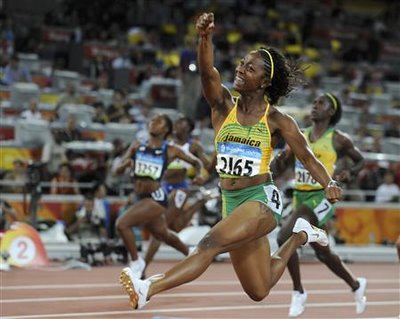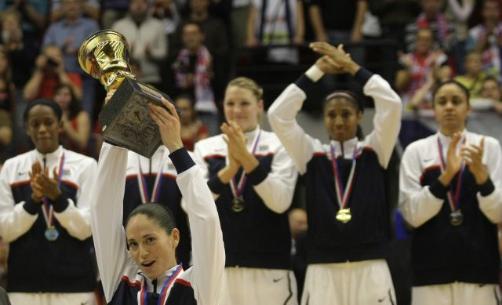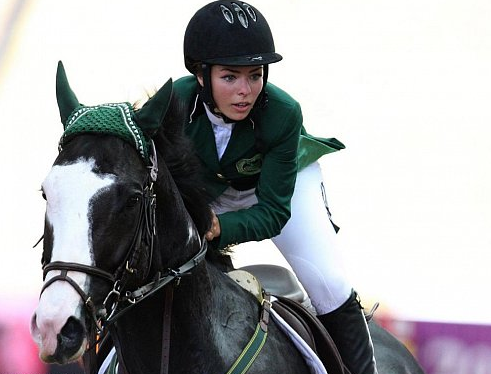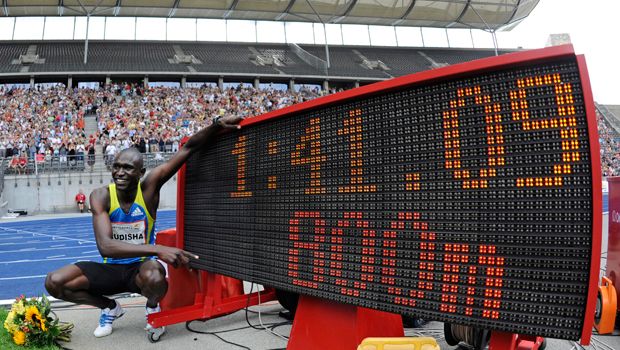Rudisha powered home to beat the previous record of 1:41.11 set by Wilson Kipketer, a Kenyan-born runner from Denmark in Cologne, Germany on Aug. 24, 1997.
“I met him last year and he told me, 'I can see you have a future in the 800, you can beat the world record,”' Rudisha said of Kipketer. “He encouraged me to go for it.” Rudisha broke the record at the same stadium where he was just a semifinalist in the 800 at last year's world championships.
“I was very disappointed last year, but the weather was so cold then,” said Rudisha, a 21-year-old former world junior champion.
“I knew that I would be fast today and that I am in good shape. I was just hoping the weather would be good. It was a bit windy but otherwise it was perfect,” he said.
Rudisha was already the second fastest two-lap runner in history after clocking 1:41.51 in Belgium in July.
Once the pace maker dropped out after the first lap, Rudisha ran alone against the clock. Sammy Tangui of Kenya ran the first lap in 48.65 to put Rudisha on course.
“I saw I was inside world record pace in the final straight and I just went for it. This was really the first time I tried to break the record,” Rudisha said.
“This was my first aim, to break the record. Now my next steps are to win world and Olympic titles,” Rudisha said.
“But I can still improve my world record.” While Rudisha did not have good memories of his previous visit to Berlin, the Olympic Stadium was the site of Semenya's triumph at the world championships last year. She subsequently missed 11 months of competition while undergoing gender tests.
“I still feel the same but it was not easy for a 19-year-old girl to go through what I've been through,” Semenya said after cruising home in 1:59.90.
“I ran a good time, I felt at home,” said Semenya, who was greeted warmly by a crowd of nearly 50,000 at the Olympic stadium.
The South African teenager surged ahead in the last 50 meters to cross the line in under two minutes in her third race since she was cleared to run again in July. She competed in two minor races in Finland before getting invited to run in Berlin. Semenya hopes to make the South Africa team for the Commonwealth Games in October.
She was 4.5 seconds slower than her winning time of 1:55.45 in Berlin last year.
Before the start, Semenya said she was only thinking about that race. “That's when I broke the South African record and I was hoping to run fast again,” she said.
Semenya was at the back of the pack during the first lap, then started increasing the pace and moving past her rivals.
“It's been a long time since I raced a fast race. I just tried to go with them, to feel comfortable. I was just looking for the last 100 meters,” she said.
Semenya will now run next week at the Diamond League final in Brussels, Belgium and two meets in Italy. Her focus will be in preparing to defend her title at next year's world championships in Daegu, South Korea, and the following year's Olympics in London.
While the Berlin meet has lost the elite Diamond League status, it still produced some good results. Tarike Bekele of Ethiopia ran the fastest 3,000 of the year in 7:28.99.
Nesta Carter of Jamaica won the men's 100 in 9.96 seconds.
Steve Hooker of Australia, who won the world title last year, failed to clear a height in the pole vault.










